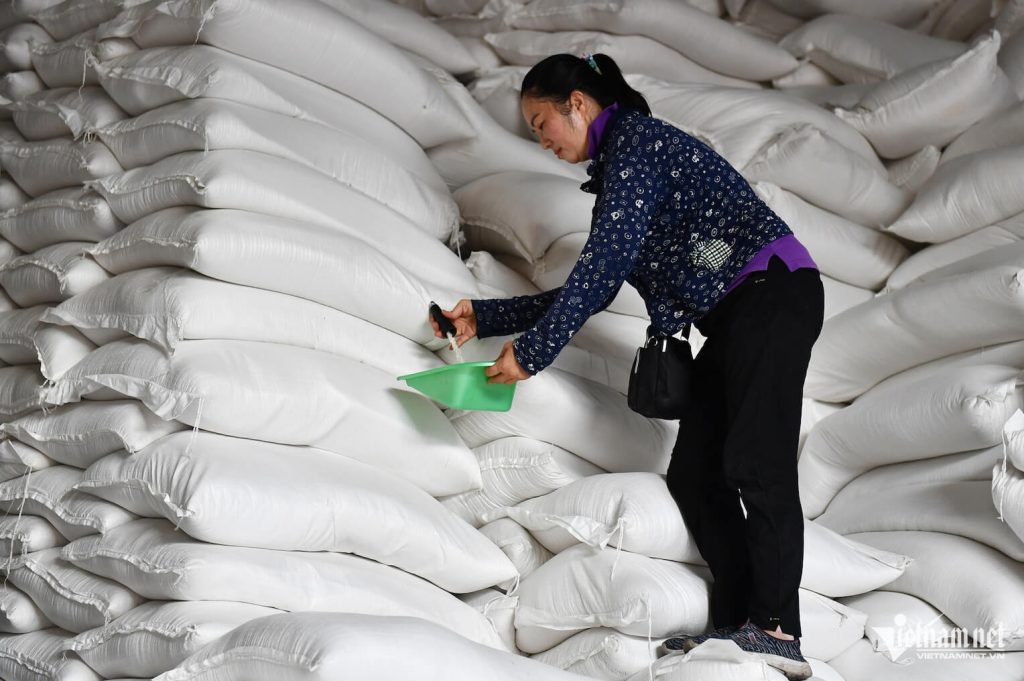Tags
Vietnamese traders required to stockpile rice before export deals
New rice export rules are driving up costs for traders with pre-contract storage mandates.
Several proposed regulations in the draft decree on rice export business are raising costs and increasing capital pressure for new traders.
These include requirements to stockpile at least 1,250 tons of rice even without having signed contracts, and the obligation to own warehouses instead of being allowed to lease them.

Vietnam is one of the world’s top three rice exporters. In 2024, the country exported over 9 million tons of rice, earning nearly USD 5.7 billion. However, despite this billion-dollar industry, significant inefficiencies remain, leading to volatile prices and periods of frenzied competition between buyers and sellers.
To address these issues and promote sustainable rice production and exports aligned with market demands and the interests of all parties, the Ministry of Industry and Trade has developed a draft decree to amend Decree 107/2018/ND-CP on rice export business and Decree 01/2025/ND-CP. This consolidated draft is currently open for public feedback.
The Vietnam Chamber of Commerce and Industry (VCCI) believes several proposed provisions are unreasonable, particularly for new rice trading businesses, as they increase operational costs and capital requirements.
Specifically, Article 1.1 of the draft (amending Article 4.2 of Decree 107) requires rice exporters to own rice and paddy storage facilities. This means businesses would no longer be allowed to lease storage space, as is currently permitted.
According to VCCI, the primary goal of this storage requirement is to confirm that a business has operational capacity and a place to store rice. Whether these facilities are owned or leased should not matter, provided they meet quality standards. Ownership versus leasing is a matter of business freedom, aligned with the principles of a market economy.
The organization warns that this ownership-only rule could weaken the competitiveness of Vietnamese exporters, which would affect farmers’ incomes and the long-term sustainability of the rice value chain.
VCCI also rejected the drafting body’s argument that leasing gives companies an unfair pricing advantage because they avoid upfront investment costs. According to VCCI, leasing costs are still a part of total production expenses and are factored into the product’s final price – therefore, not an unfair advantage.
“There’s no need for state intervention in normal price differences between businesses that own or lease storage facilities in a market economy,” VCCI emphasized. The chamber proposes removing the requirement that rice exporters must own storage warehouses.
Similarly, Article 1.7 of the draft (amending Article 12 of Decree 107) mandates that new businesses must stockpile at least 1,250 tons of rice within 45 days of receiving their license and maintain this amount until actual exports occur.
According to VCCI, this rule could confuse new businesses, as they would be forced to buy and store large quantities of rice before securing any export contracts – leading to capital strain, higher storage and preservation costs, and unnecessary financial burden.
It also leaves companies vulnerable when sourcing rice, as they cannot predict exactly when they’ll be licensed.
The drafting body argues that without a stockpiling requirement, new traders would only purchase rice once they’ve signed contracts, which could cause competitive buying and price volatility. Alternatively, they may not buy during the harvest season, harming farmers’ profits.
However, VCCI contends that if this issue is limited to new traders, the impact will be negligible, as farmers still have the option to sell to existing traders. And if the issue is widespread, this regulation would still fail to resolve the root problem.
Therefore, VCCI recommends removing the stockpile requirement for new traders.
Additionally, the organization proposes amending the rule on license revocation in cases where the Ministry of Industry and Trade does not receive a report on inventory maintenance within 45 days of sending a reminder. Instead, VCCI suggests using administrative fines, with the possibility of applying higher penalties if necessary.
Regarding the prohibition of rice export entrustment, VCCI also calls for this rule to be scrapped.
Currently, many enterprises produce rice that meets export standards but cannot qualify for export licenses due to strict criteria. Allowing export entrustment would enable them to access international markets while preventing orders from being redirected to more permissive markets like Cambodia or Thailand.
Otherwise, Vietnam’s rice export activity could suffer, and some businesses might be forced to shut down.
VCCI noted that entrusted exports are fully consistent with the Law on Commerce and relevant regulations, as rice is not listed as a prohibited or temporarily restricted export item.
The organization emphasized that revising the rice export business regulations must align with the guiding spirit of Resolution 68 – ensuring a favorable business environment, encouraging market-based competition, and minimizing unnecessary compliance costs for enterprises.
Tam An
https://vietnamnet.vn/en/vietnamese-traders-required-to-stockpile-rice-before-export-deals-2405782.htmlPublished Date: May 29, 2025






